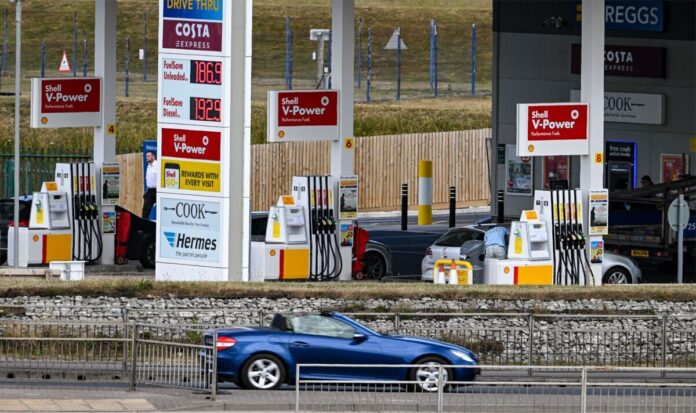Average pump prices for diesel have gone back above 190p a litre, having last been at that level on August 3, according to AA data. Rising to 190.12p a litre over the weekend, the fuel that powers haulage, deliveries and other working road transport had fallen to a summer low of 180.18p a litre on 29 September.The 10p-a-litre rise adds £8 to the cost of filling a Transit-size fuel tank – £152.10 instead of £144.14 at the end of September.Meanwhile, petrol is back up above 165p a litre after hitting 166.17p on Friday.On October 5, the average price had bottomed out at 162.30p a litre, having set a record of 191.53p at the beginning of July.To add to the misery of diesel car owners, the price gap with petrol has now grown to 23.95p.READ MORE: Cyclists warned riding in the middle of the road is ‘daft’ Drivers warned of rising petrol and diesel prices as fuel economy may drop. (Image: Getty) Many drivers are concerned about the rising prices. (Image: Getty)Tracking the wholesale cost of both fuels shows that the increases at the pump should level off shortly.However, while supermarkets will hold back some of the price rises initially and offer the cheapest fuel in the short-term, the higher costs will also find their way on to superstore forecourts.Luke Bosdet, fuel spokesperson for the AA, said: ‘This is not only bad news but bad timing. ‘The clocks going back this weekend will soon move the evening rush hour into darkness. DON’T MISSPetrol cars will be ‘a hobby’ in the future – EVs will take over [INSIGHT]Drivers issued with urgent E10 winter warning as cars risk damage [WARNING]Top Gear host Chris Harris warns petrol and diesel car makers [COMMENT] Petrol and diesel prices over the past five years. (Image: Express)Recent data from HMRC shows that UK’s petrol consumption continues at only around three percent below pre-covid levels.This is despite a persistent five percent to 10 percent reduction in car travel since the end of the lockdown.The AA believes that the reduction in car travel is due to more drivers either cutting out short journeys or combining trips to try to counter the impact of record pump prices in July. Essential journeys, such as driving to work, the school run, shopping trips and visiting relatives, make it difficult for car owners to cut back on most fuel consumption.However, statistics released by the Department for Transport show some reduction in car travel in the past fortnight – coinciding with rising pump prices and bad weather.


